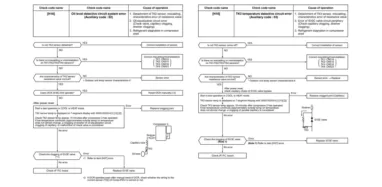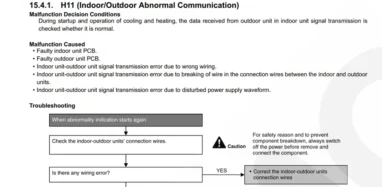Air conditioner is used around the world for one purpose: to improve the quality of air in circulation. This could mean many things; it can be that it purifies the air or that there’s enough air in circulation. But the thing is, no matter the quality of the air, it has to be regulated to avoid under or oversupply of air.
Both conditions could be potentially dangerous, which is why air conditioners are often designed with vents: vents help to control air pressure. This is why many people are concerned about its installations and ask questions like, should air conditioner vents point up or down?
You will find answers to this question, as well as every other vent-related issue, in this helpful article.
Should the Ac vent face up or down?
Your air conditioner vent should point upward. Firstly, you need to know that no ground rule says specifically the direction that air conditioner vents must be directed towards, but for efficiency, they should be pointing upward.
Air conditioners are designed in such a way that the cold air sinks while the hot air rises. Therefore, pointing the vent (which directs the flow of air) upwards will allow the cold air to override the hot air before they sink. This will lead to even distribution of cold air across the indoor spaces with no worries about the air concentrating on just a location.
How does the AC air vent work?
To cool a room, AC will, first of all, absorb the moisture and warm air from the room, which will result in the separation of dampness from the air. And once the warm air is finally cooled, it is the work of the air vent to bring the cooled air into the indoor spaces.
How should the HVAC vent be placed?
Your HVAC vent should be placed close to the ceiling to help reduce the energy consumption level of your air conditioner. Placing the vent in this area will help to evenly circulate heat or cool air across the room without cold or hot areas.
Should AC vents be on the floor or ceiling?
It doesn’t matter whether your AC is placed on the floor or in the ceiling; what matters is what indoor temperature you prioritize. Vents placed in the ceiling will cool the room better, while the ones placed on the floor heat the room better. So, if you prioritize cooling, you should put the vent inside the ceiling, but if you prefer heat, placing the vent on the floor will ensure that enough heat circulates throughout the room.
Why are air conditioning vents usually located higher up?
Most homeowners install air conditioners because they need cool air, and to achieve this, air conditioner vents must be placed high-ups. This is because the cool air is heavy while hot air is denser, and therefore, they tend to move downward while hot air moves upward. This means that when vents are placed higher up, cool air will be evenly circulated throughout the room, which will lead to efficiency.
Why are AC vents pointed toward the windows?
As the air conditioner releases cool air into the room, they sink to the floor, and when this happens, it may make the prevailing temperature uncomfortable for occupants. Pointing the AC vents towards the window will help you counteract the cold air by warming them up as they move to the floor so that the coldness can be bearable.
Should window AC vents point up or down?
Window AC vents should be pointed upward. Pointing your window AC upward will help to maximize the coolness of the room. So how does the AC achieve this? This is achieved by circulating cooled air throughout the room while some cooler air remains trapped in the floor.
Should portable AC vents point up or down?
Portable AC vents should be pointed upward. Portable air conditioner, although they may be less effective compared to window AC, the placement of their vents is the same. Just like the window AC, the vent of a portable AC should be faced upward to ensure even distribution of air throughout the room.
Should AC vents be open or closed during the winter?
AC vents should be left open during winter. Whether it is during winter or summer, it is not ideal to leave your vent closed 24/7. By leaving it closed, you are risking damaging your air conditioner.
When the vent is left closed while the air conditioner is working round the clock, it leads to pressure buildup in the HVAC system, which could lead to holes or cracks in the ductwork or cause the heat exchanger of the furnace to crack.
Leaving the vent open will help avoid these ugly situations. And if you are worried about excessive cold during winter, you can have a zoned HVAC system installed so that you can control the flow of air to a particular area.
Should you close AC vents in unused rooms in winter?
No, you shouldn’t close AC vents in unused rooms during winter. If, as a homeowner, you are thinking of shutting off your ac vents just to reduce the cost of running the AC, I would advise that you rethink your decision because the outcome may be reversed: you will have to pay extra money to repair the damages that may occur as a result of your action.
Does closing AC vents downstairs help cool upstairs?
Yes, closing AC vents downstairs helps coop upstairs. By shutting the vents downstairs, you are restrictions the flow of air to this area which means the volume of airflow to the opened vent will be increased. This will also lead to an extended time of cooling cycle which will force cool air to be directed upstairs.
Why you shouldn’t cover your AC vents
- It could lead to damaged components due to air pressure buildup.
- It could lead to an increase in the energy consumption level of your HVAC system because your unit will be working harder than usual to cool the room.

